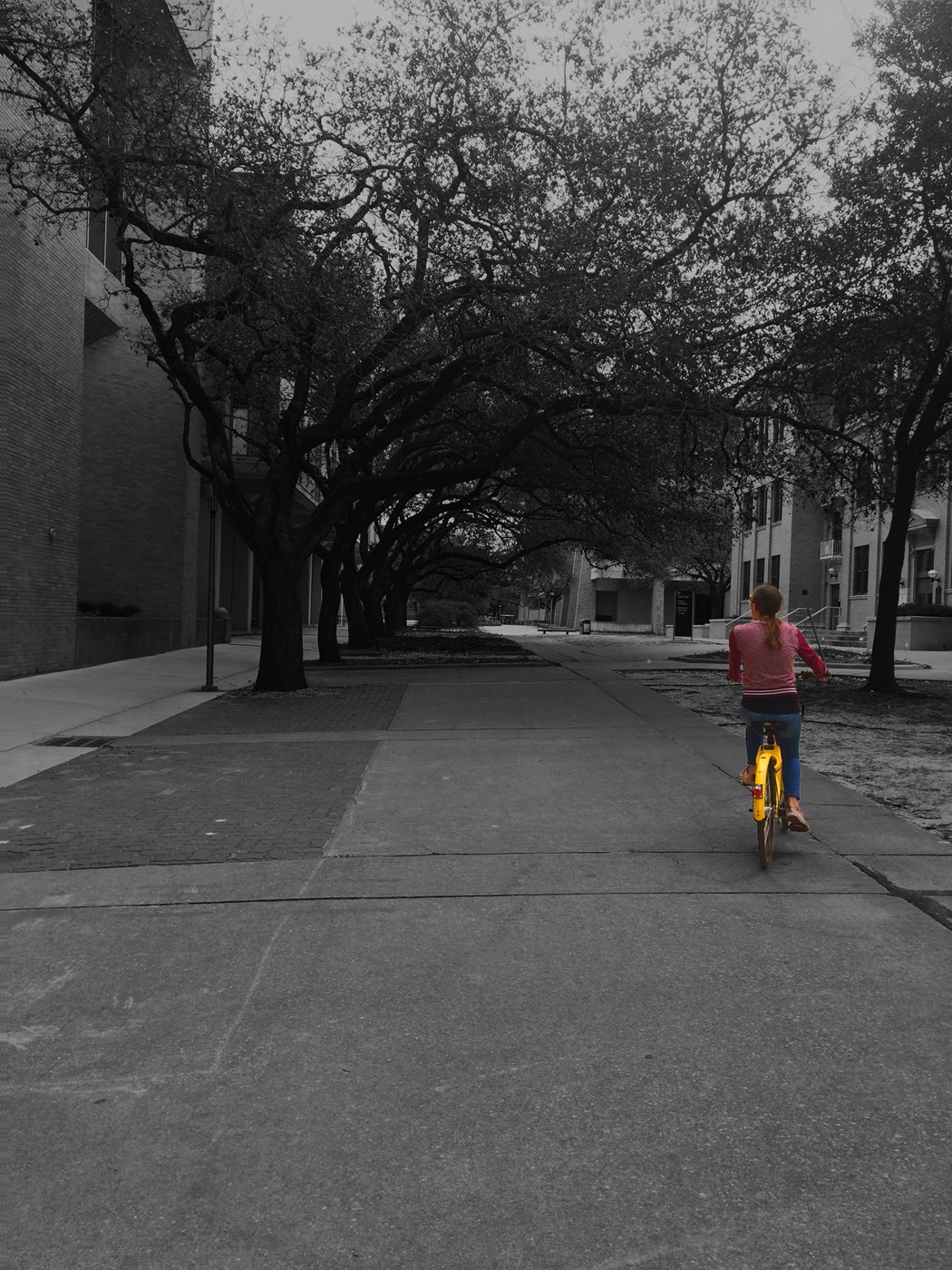July 2018

I attend my second class at night. Evenings are not the best time for me. Something seems to happen to my brain as the sun goes down. Long ago, I must have formed an association between daylight and thinking clearly. In Plato’s “Allegory of the Cave,” light represents knowledge, so clearly I’m not the only one. Unfortunately, university officials don’t consider the established cultural connection between sunlight and knowledge when planning graduate courses.
So, there I was in a graduate class at night. My brain felt like zombie porridge. The professor sensed my unwillingness to talk.
“Stacie, is it? Could you summarize Lacan’s concept of the Real?”
By night time, my frazzled mind had released its shaky grasp on the complicated concept. My B.S. aptitude also decreased at night, so I couldn’t make up an acceptable answer.
At this moment, my thoughts could have spiraled into negativity. I could have wondered why I was even admitted into a graduate program or believed I wasn’t as smart as my classmates. I could have felt like an imposter.
But I couldn’t let my thoughts spiral in that direction. If I indulged every potentially negative thought spiral that came my way, I’d never leave the house. (None of us would, if we’re being honest).
The tricks that work for me aren’t the bogus positive thinking mantras like: “I’m smarter than I think I am,” or “I deserve to be here.” Those things might be true, but I’m not going to buy them if I’m in a negative state of mind.
Instead, I remind myself that literally no one was born knowing this stuff. Not even the professor could quote Lacan the minute his shiny bald head poked itself out of his mother’s womb (although the image amuses me). Chances are, Dr. T started out as a clueless grad student like me. I imagine him as an excitable young man, fumbling over long words and mispronouncing tricky names like “Proust.” I don’t imagine such images to demean the professor, but to recognize that knowledge doesn’t spring out of an abyss.
Imposter syndrome seems to come most often from students early in their graduate careers comparing themselves to students further on in the program. Telling oneself that such comparisons are unfair can help stave off feelings of inferiority.
Anyway, everyone draws their knowledge from past experiences. If one student has an English professor as a parent and another student only learned English two years ago, whose experiences matter more? Whose knowledge matters more?
According to the Oxford English Dictionary, the idiom “to fly by the seat of one’s pants” comes from aeronautical language. The phrase means “a person's (originally a pilot's) sensitivity to the movement or vibration of an aeroplane, motor vehicle, etc., used as a guide in controlling it. Hence, more generally, in by the seat of one's pants: by instinct and experience rather than logic, expert knowledge, or technical aid.”
Much of graduate school can be defined as flying by the seat of one’s pants. We aren’t yet experts in our fields, but we’re pushing through guided by instinct and experience alone. The idea of flying without expert knowledge might seem frightening, but having to rely on one’s instincts creates a certain thrill. The thrill can only last for a short time, until the pilot gains the expert knowledge required to fly safely (or in the graduate student’s case, schmooze and show off intellectually). Honestly, the not-knowingcan be more fun than the knowing. Let’s continue flying by the seat of our pants while we can.
---
Stacie Worrel
Stacie is a Masters candidate in the Department of English